
What will Republican voters do? That’s the big question of this primary, and everyone seems to be dividing the voters into “the conservatives,” “the establishment,” liberal Republicans, and – somewhere way out there – Trump supporters. But there’s a significant factor being ignored, which is hard to quantify but crucial in any Republican primary. I call them “Republican Regulars,” and they are about to become a whole lot more important.
This is not precisely the same thing as “the Republican base,” which in any event can be an imprecise term – who is the base? There are two possible definitions – either (1) “the base” is the people who always show up to vote for you or, more expansively, (2) “the base” is the people who always vote for you when they show up.
But let’s step back and describe a particular type of voter that has been a part of the Republican base since the 1860s, and who anyone involved in GOP politics has encountered frequently over the years: the “Republican Regular.” I would describe the Republican Regular as having the following characteristics:
1. A “medium-information” voter. High-information voters follow blogs and/or talk radio, are plugged tightly into small distinctions between the candidates and the ideological factions in the party, have strong opinions many months ahead of elections, and have strong loyalties to particular segments of the party. Low-information voters, at the opposite end of this scale, tune in late and often have only a superficial grasp of the issues and ideologies.
Medium-information voters are the people in between. They follow the news; 40 years ago they would have been the sort to read the morning paper and watch the evening news, and many still do, or consume equivalent news sources. They know what’s going on in the world, they know who the candidates are, and they have some idea of what the candidates stand for or have accomplished. But they are unlikely to draw fine ideological distinctions. Many Republican Regulars were ultimately convinced that Mitt Romney, George W. Bush, and Bob Dole were roughly the same sort of Republican as Ronald Reagan, and that John McCain was mostly so.
2. A party loyalist who sees no serious contradiction between that and the conservative movement. Republican Regulars generally believe in the general principles of the GOP – strong national defense, low taxes, smaller government, law and order. That’s why they became Republicans. Most, especially outside the Northeast and West Coast, are pro-life; all are comfortable voting for openly pro-life candidates. Many would identify themselves as conservatives, or at least as conservative, and none would have a problem voting for a candidate who is identified as a conservative.
3. Not part of the establishment: Republican Regulars mostly live outside the Beltway, don’t make money off politics, aren’t big bundlers or donors (though they may be regular donors), and don’t hold any position in the party above the lowest grassroots level. Many either don’t volunteer in politics or at most might show up once a year to pitch in on Election Day. But they are typically the sorts of people who will gladly put a sign in their yard or a bumper sticker on their car.
4. They almost always vote Republican. Republican Regulars don’t stay home in a snit; they are regular voters, and generally regular primary voters as well. Unless the Republican candidate horrifies or embarrasses them – by being a crook, a complete nut, or an Akin/O’Donnell style gaffe disaster – they will pull the GOP lever. It takes something really big to change that. Most of them are the kind of people who, under the right circumstances, could be happy voting for Ted Cruz and happy voting for John Kasich and not see a huge contradiction there (indeed, they comprise a big chunk of the Christie base in New Jersey, the Cruz base in Texas, the Kasich base in Ohio, etc.)
5. They tend to be middle-class to upper-middle class: Not all of them; some are country-club or boardroom types and some are just scraping by, but the bulk are small business owners, white-collar office workers, farmers, cops, firemen, military veterans, stay-at-home moms. They work for a living, or are married to someone who does, or did until they retired, or in some cases are students who plan to.
6. Their two biggest primary issues are public safety and electability: Because these voters are not ideological at a granular level, they will typically default to supporting the candidate who seems best able to win the general election, and won’t consider a candidate who seems unable to do so. Thus, they tend to back establishment candidates but can be won over by insurgents, usually if the insurgent seems sane and charismatic and able to go the distance. That’s one reason why a Cruz vs Dewhurst or Rubio vs Crist style primary challenge needs to gather a critical mass of momentum and support among ideological voters before it even gets a hearing from these voters (neither Rubio nor Cruz could have won their Senate races without the support of people who originally were in their opponent’s camp – indeed, Cruz increased his raw vote total while decreasing Dewhurst’s between their original primary and their runoff, in part because a head to head race made him seem more viable).
That said, historically a paramount issue for rank-and-file Republicans is national security and law and order – the constellation of issues that make up public safety. Those were dominant issues in the Cold War era and the Bush years, as well as during the protests of the 60s and the crime wave that lasted from the mid-60s through the mid-90s. A candidate who flunks that test tends to fail badly with these voters (think of why Ron Paul never broke out from being a niche candidate).
In short, these are voters who are not hard-core conservatives, knee-jerk squishes, or paid establishment shills. They’re not fools or suckers, but they mostly have better things to do with their time than obsess over politics. And they’re ready to make a serious choice soon.
Nobody I Know…
Who will these voters support in the 2016 primaries? My own experience, which may or may not be representative, is that a great many of them are just horrified out of their wits by Donald Trump, are baffled by his rise because they don’t personally know any Trump voters, don’t think they would even recognize a party led by Trump, and at least as things stand now aren’t sure they could ever pull the lever for him in November. That’s anecdotal, but there have been a couple of reports from the field in New Hampshire the past few days talking to party activists and Republican Regular voters alike and hearing the same reaction. Byron York in the Washington Examiner, reporting from a Presidential Town Hall in Nashua:
[L]ying just beneath the attendees’ enthusiasm for the candidates was a remarkable level of confusion, frustration, and just plain bewilderment at what is going on in their state’s presidential race. How is it that Donald Trump is leading his closest competitor by nearly 20 points?…In one of my first conversations at the Radisson, with two Republican activists, I asked a simple what’s-up question about Trump. Both immediately responded in exactly the same way: “I don’t know anybody who supports him.” They’re politically active and aware, but they said they have no contact in their daily lives with even a single person who supports their party’s front-runner.
After that conversation, I began to ask everyone I met: Do you know anyone who supports Donald Trump? In more cases than not — actually, in nearly all the cases — the answer was no.
York found something bordering on paranoia among New Hampshire politicians (and given the size of its state legislature and the frequency of its elections, New Hampshire has a lot of politicians):
Most of the politicos in Nashua…explained that they haven’t personally encountered evidence that the Trump-dominated polls are accurate.
“I don’t see it,” said one very well-connected state Republican. “I don’t feel it. I don’t hear it, and I spend part of every day with Republican voters.”…The big worry among such Republicans is that there is a Trump movement out there that they can’t see. “That’s how we got burned by Obama,” the politico said, recalling the 2008 race…I talked to a Republican political operative who has done a lot of work in New Hampshire. He has done so much work, in fact, that he knows many of the streets throughout the state by heart, and knows which houses display candidates’ political signs at primary time and which don’t.
He described driving down a street on the west side of Manchester, checking out the houses. He noticed Trump signs in front of houses that he knew had never displayed signs before. Seeing that, he began to think that all the talk about Trump appealing to a different kind of voter might be true.
Michael Barbaro and Ashley Parker in the New York Times found something similar in Brookline:
So deep is the dislike for him in some quarters that people like Mrs. Cleveland’s husband, Doug, question the accuracy of polls that so consistently identify Mr. Trump as leading the field with around 32 percent. “I’ve never met a single one of them,” Mr. Cleveland said about those said to be backing Mr. Trump. “Where are all these Trump supporters? Everyone we know is supporting somebody else.”…These are the lamentations of the 68 Percent — the significant majority of Republican voters here who are immune to Mr. Trump’s charms and entreaties, according to a battery of voter interviews on Thursday at campaign events for his rivals…Their disapproval runs strikingly deep. Several spoke of changing the channel whenever his face (or, more frequently, his New York-accented voice, via telephone) turned up on television.
…And, as loyal Republicans, they (mostly) vow to coalesce around him should he seize their party’s nomination…But they have limits.
For a smaller, unscientific sample size of political obsessives, Patrick Ruffini did a poll on Twitter yesterday – with 393 responses in, 49% said they personally know no Trump supporters:
Do you personally know anybody who supports Trump?
— Patrick Ruffini (@PatrickRuffini) January 25, 2016
As Byron York notes, some of this is reflective of a social divide of the “nobody I know voted for Nixon” line attributed to New York film critic Pauline Kael after Nixon had just won a 49-state landslide, but Kael at least was not a member of Nixon’s own party – it’s still unusual to see within a party’s own voter base so many regular voters who don’t know anyone supporting the putative front-runner of a party they have belonged to for years.
Who Is Mr. Electable?
My assumption underlying this race for some time has been that the Republican Regulars would warm to a candidate who seemed electable – most likely Marco Rubio, unless he could be knocked out early enough. That clearly is Rubio’s strategy – to win the voters who are neither establishment nor anti-establishment voters at heart, but typically side with establishment-backed and next-in-line candidates because they want to elect a Republican in November. And it is likewise the strategy of just about everyone else in the race to avoid facing Rubio one-on-one for precisely this reason.
Even if they don’t, I still think many of these voters would choose Ted Cruz over Trump, if those are the choices – indeed, that any candidate other than possibly Jeb Bush would gain their loyalty in a matchup against Trump. Cruz may not be the most popular guy in the Senate chamber, but to your average Republican Regular, he’s still a Republican Senator and thus a potentially credible President. One of the reasons why Cruz’s rise in favorables among GOP voters is so important is that it signals that, whether or not they back him, a lot of Republicans at present see Cruz as a candidate they can live with. Any effort to take him down from behind would require convincing the voters (whether by negative attacks or simply by presenting a contrast in personalities and other indicia of “electability”) that they should not.
Of course, even these voters are not immune to waves of anger at the party, as the 2010 Tea Party wave in particular proved. That, after all, is why we have elections. One of the interesting questions is the extent to which immigration – which has in past years been mostly a niche concern of 10% or less of the party as a voting issue – has finally managed to break through and become a proxy for public safety issues, a dynamic that would undoubtedly help the more border-hawkish primary candidates.

Holding The Battlements
The need to court Republican Regulars is why the battle over what Trump represents remains so important. For most of these types of voters, Trump right now is not acceptable, mainly for reasons of temperament and consistency – but if they see the party establishment falling in line behind him, and if they see influential voices on Fox News and in the Wall Street Journal and other widely-circulated sources treating Trump as a legitimate option, a chunk of them will resign themselves to the idea that this guy is on our side and has the best chance of beating Hillary and doing the things people elect Republicans to do. That was what Mitt Romney was able to do, despite a history of liberal or moderate positions on a lengthy laundry list of issues, although Romney did not have Trump’s additional personal baggage or recent history of bankrolling liberal Democrats. Trump himself is now trying out the argument that the establishment will be just fine with him:
GOP front-runner Donald Trump says establishment Republicans are warming up to his presidential bid because they’re terrified of Ted Cruz being the party’s nominee.
“I think the establishment actually is against me but really coming on line because they see me as opposed to Cruz, who is a nasty guy who can’t get along with anybody,” Trump said in an interview with CNN’s Wolf Blitzer on Monday.
“Look, at a certain point, we got to make deals,” Trump continued. “We can’t have a guy who stands in the middle of the Senate floor and every other senator thinks he’s a whack job. You have to make deals, you have to get along, that’s the purpose of what our founders created, and Ted cannot get along with anybody. He’s a nasty person.”
That’s exactly why it’s so important for publications like National Review to do things like an “Against Trump” issue to force a conversation on the issue that will seep out past NR’s regular readership, and why pulverizing Trump with negative ads will still need to be done sooner or later, and why members of the GOP establishment and Fox News pundits (whether out of hatred for Ted Cruz or just a reflexive urge to get in line behind whoever seems to be winning at a particular moment) are playing with fire by signalling in any way that Trump is someone they can live with.
The people bending in Trump’s direction these days remind me of George Orwell’s famous critique of intellectuals (in an essay criticizing the wartime writings of James Burnham, who ironically went on to be one of the early National Review writers, and specifically criticizing Burnham’s faith in managerial expertise):
It will be seen that at each point Burnham is predicting a continuation of the thing that is happening. Now the tendency to do this is not simply a bad habit, like inaccuracy or exaggeration, which one can correct by taking thought. It is a major mental disease, and its roots lie partly in cowardice and partly in the worship of power, which is not fully separable from cowardice.
Suppose in 1940 you had taken a Gallup poll, in England, on the question ‘Will Germany win the war?’ You would have found, curiously enough, that the group answering ‘Yes’ contained a far higher percentage of intelligent people — people with IQ of over 120, shall we say — than the group answering ‘No’. The same would have held good in the middle of 1942. In this case the figures would not have been so striking, but if you had made the question ‘Will the Germans capture Alexandria?’ or ‘Will the Japanese be able to hold on to the territories they have captured?’, then once again there would have been a very marked tendency for intelligence to concentrate in the ‘Yes’ group. In every case the less-gifted person would have been likelier to give a right answer.
If one went simply by these instances, one might assume that high intelligence and bad military judgement always go together. However, it is not so simple as that. The English intelligentsia, on the whole, were more defeatist than the mass of the people — and some of them went on being defeatist at a time when the war was quite plainly won — partly because they were better able to visualise the dreary years of warfare that lay ahead. Their morale was worse because their imaginations were stronger. The quickest way of ending a war is to lose it, and if one finds the prospect of a long war intolerable, it is natural to disbelieve in the possibility of victory. But there was more to it than that. There was also the disaffection of large numbers of intellectuals, which made it difficult for them not to side with any country hostile to Britain. And deepest of all, there was admiration — though only in a very few cases conscious admiration — for the power, energy, and cruelty of the Nazi régime. It would be a useful though tedious labour to go through the left-wing press and enumerate all the hostile references to Nazism during the years 1935-45. One would find, I have little doubt, that they reached their high-water mark in 1937-8 and 1944-5, and dropped off noticeably in the years 1939-42 — that is, during the period when Germany seemed to be winning. One would find, also, the same people advocating a compromise peace in 1940 and approving the dismemberment of Germany in 1945. And if one studied the reactions of the English intelligentsia towards the USSR, there, too, one would find genuinely progressive impulses mixed up with admiration for power and cruelty. It would be grossly unfair to suggest that power worship is the only motive for russophile feeling, but it is one motive, and among intellectuals it is probably the strongest one.
Power worship blurs political judgement because it leads, almost unavoidably, to the belief that present trends will continue. Whoever is winning at the moment will always seem to be invincible. If the Japanese have conquered south Asia, then they will keep south Asia for ever, if the Germans have captured Tobruk, they will infallibly capture Cairo; if the Russians are in Berlin, it will not be long before they are in London: and so on. This habit of mind leads also to the belief that things will happen more quickly, completely, and catastrophically than they ever do in practice…Such a manner of thinking is bound to lead to mistaken prophecies, because, even when it gauges the direction of events rightly, it will miscalculate their tempo. Within the space of five years Burnham foretold the domination of Russia by Germany and of Germany by Russia. In each case he was obeying the same instinct: the instinct to bow down before the conqueror of the moment, to accept the existing trend as irreversible.
Republican Regulars, like most every other category of GOP voters, have less faith in the party’s leadership than they did in the past, but they are still sooner or later going to make up their minds based in part on what they see the party leaders and conservative movement leaders (who they may not distinguish, as many outside these fights do not) treating as acceptable or inevitable; this is the “Party Decides” theory of political science. If those leaders succumb in a panic to what Orwell saw as a cowardly power-worship and start falling in line behind their new insect overlords, many voters who dislike Trump may be misled, long enough for the primary season, into thinking they should too.
Orwell warned specifically about the mental process of classifying different things as similar or different based on how thinkable it could be to accept them – an issue that often lies underneath our arguments about which politicians we could accept and which are a bridge too far:
[T]he attitude that Burnham adopts, of classifying Communism and Fascism as much the same thing, and at the same time accepting both of them — or, at any rate, not assuming that either must be violently struggled against — …would be almost impossible for an Englishman…English writers who consider Communism and Fascism to be the same thing invariably hold that both are monstrous evils which must be fought to the death: on the other hand, any Englishman who believes Communism and Fascism to be opposites will feel that he ought to side with one or the other. The reason for this difference of outlook is simple enough and, as usual, is bound up with wish-thinking. If totalitarianism triumphs…Britain will disappear as a world power and the whole of western Europe will be swallowed by some single great state. This is not a prospect that it is easy for an Englishman to contemplate with detachment. Either he does not want Britain to disappear — in which case he will tend to construct theories proving the thing that he wants-or, like a minority of intellectuals, he will decide that his country is finished and transfer his allegiance to some foreign power. An American does not have to make the same choice. Whatever happens, the United States will survive as a great power, and from the American point of view it does not make much difference whether Europe is dominated by Russia or by Germany. Most Americans who think of the matter at all would prefer to see the world divided between two or three monster states which had reached their natural boundaries and could bargain with one another on economic issues without being troubled by ideological differences. Such a world-picture fits in with the American tendency to admire size for its own sake and to feel that success constitutes justification…
The focus on who is capable of winning the primary and general elections is, of course, a major part of the psyop campaign of every candidate and matters in the competition for every faction of voter (hence, for example, the current surge of Cruz supporters arguing that Trump can only be stopped if Rubio supporters abandon their man for Cruz). But the dynamic is of particular importance in gaining the allegiance of Republican Regulars, who are less invested in intra-party squabbles and more concerned with picking a winning candidate who could be a Commander-in-Chief they can live with.
Where will they go? And will their traditional numbers be swamped by voters outside the traditional primary electorate clamoring for Trump? We will finally start to learn the answer in a week.

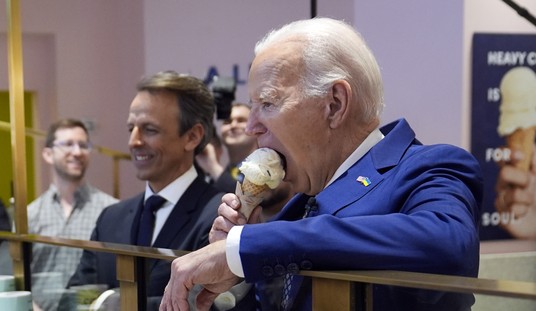
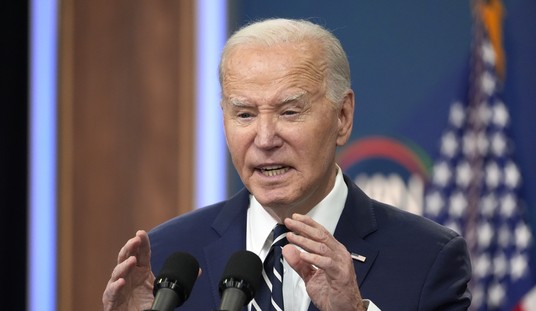


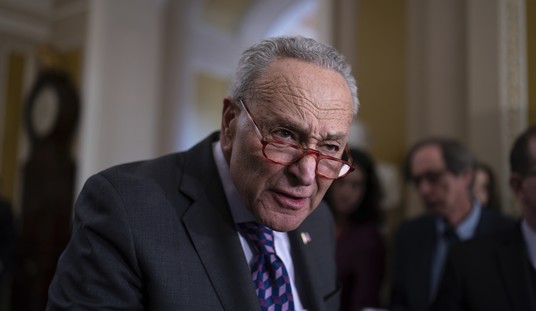
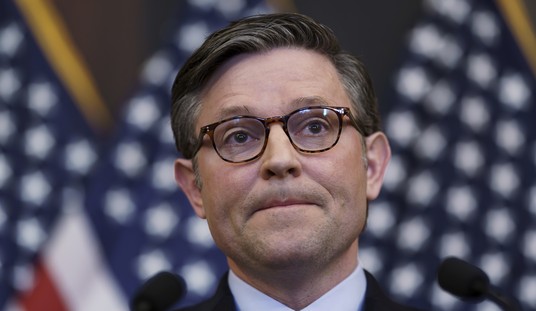
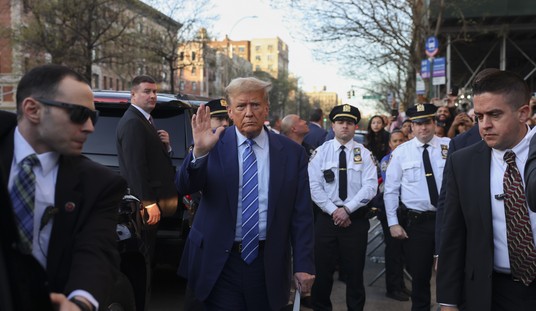






Join the conversation as a VIP Member